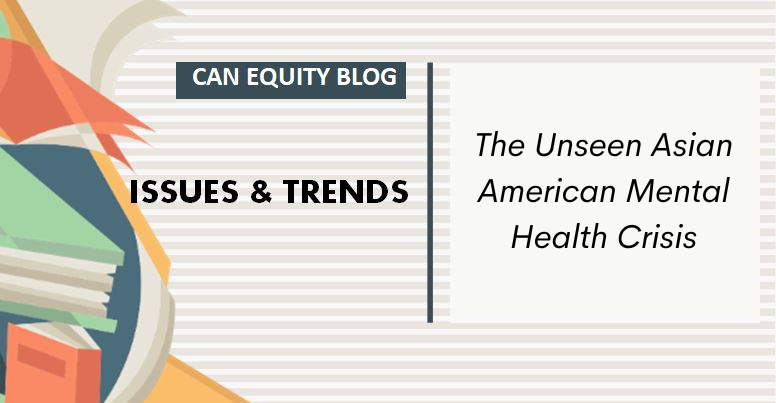
ISSUES & TRENDS: The Unseen Asian American Mental Health Crisis
Axios published an article in March describing the unseen mental health crisis for Asian Americans who have been experiencing an uptick of anti-Asian attacks after the emergence of the COVID-19 pandemic, which was it’s own traumatic event. The Asian American Community is starting to see and feel the long term effects of having to consistently be in a state of hypervigilance.
Between March 2020 and March 2022, Stop AAPI Hate documented over 11,400 self-reported anti-AAPI hate incidents nationwide. Texas ranked the 4th highest in anti-AAPI hate incidents with 103 reported cases from March 2020 to February 2021. 20% of those cases were physical assaults.
Racism against the Asian American community has happened throughout United States history dating back to the California Gold Rush and the anti-Asian hate that followed. Due to the model minority myth, there is the idea that Asian Americans are well off, well educated, successful, don’t have the types of issues that other minorities deal with, and don’t need support systems. The uptick in anti-Asian hate incidents and the hypervigilant response to that reality affects the daily lives of Asian Americans. Constantly feeling unsafe being at work, going to work or just going about your daily routine can be detrimental to both physical and mental health and can also lead to social isolation and feelings of not being valued or accepted.
According to a report by Coqual, Strangers at Home: The Asian and Asian American Professional Experiences, 62% of Asian professionals don’t feel safe traveling to work and 36% say they have experienced prejudice at work. The impact of anti-Asian hate incidents has impacted Asian Americans mental health of all ages. Out of nearly 1,700 Asian American college students over 25% reported experiencing COVID related racial discrimination and over 66% met the criteria for at least one mental health condition. Older Asian Americans tend to be the most vulnerable in the Asian American population because they may have to “suffer in silence” due to the language barrier.
The model minority myth has caused systems to believe that Asians don’t need support and Asian professionals and Asian students have reported not feeling supported by their workplace or place of learning in this time of increased anti-Asian hate. In order to better support the Asian American community, we must establish support systems that provide mental health care that is culturally informed and responsive and that helps to reduce the stigma related to seeking mental health care and talking about mental health needs.
To access CAN’s language access website visit https://wecanatx.org/.
Reports Referenced in this Blogpost:
Axios, The unseen Asian American mental health crisis (March 2023): https://www.axios.com/2023/03/24/asian-american-hate-mental-health
Axios, Asian Americans grapple with long-term reality as reported hate incidents top 11,000 (June 2022):https://www.axios.com/2022/07/20/asian-american-hate-reports-2022
WFAA, Asian-Americans were targeted in nearly 3,800 hate incidents in the past year. Texas was ranked 4th highest with 103 cases, according to Stop AAPI Hate.
The Museum of the City of San Francisco, The Chinese: https://sfmuseum.org/hist6/chinhate.html
Coqual, Strangers at Home: The Asian and Asian American Professional Experience (2023) https://coqual.org/reports/strangers-at-home/
Axios, Schools unprepared to help Asian American students navigate racial trauma (February 2023): https://www.axios.com/2023/02/25/asian-american-mental-health-schools
For More Data on AAPI Hate Incidents:
Stop AAPI Hate – https://stopaapihate.org/
Jelina Tunstill, CAN Program Coordinator